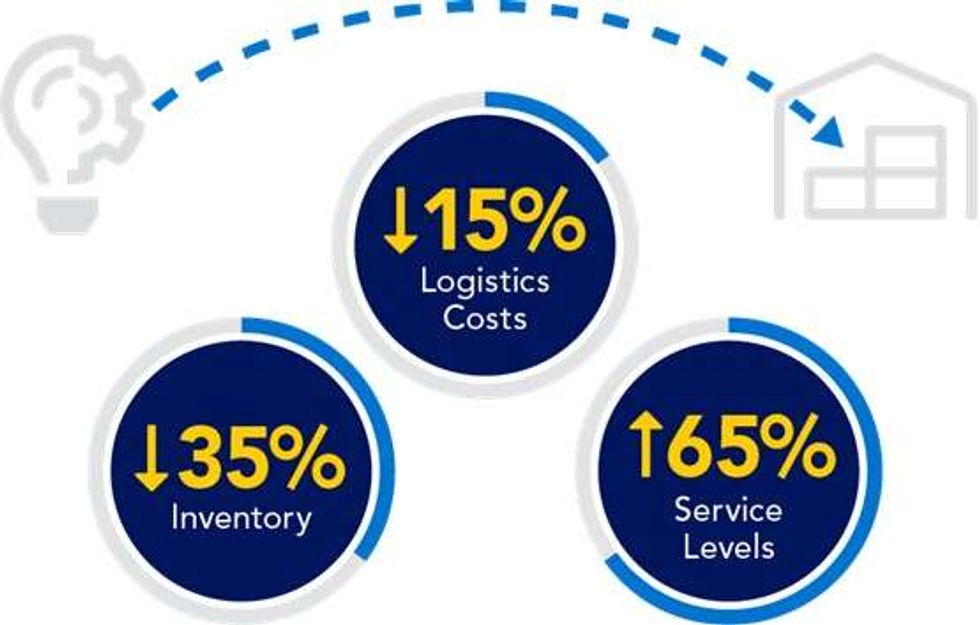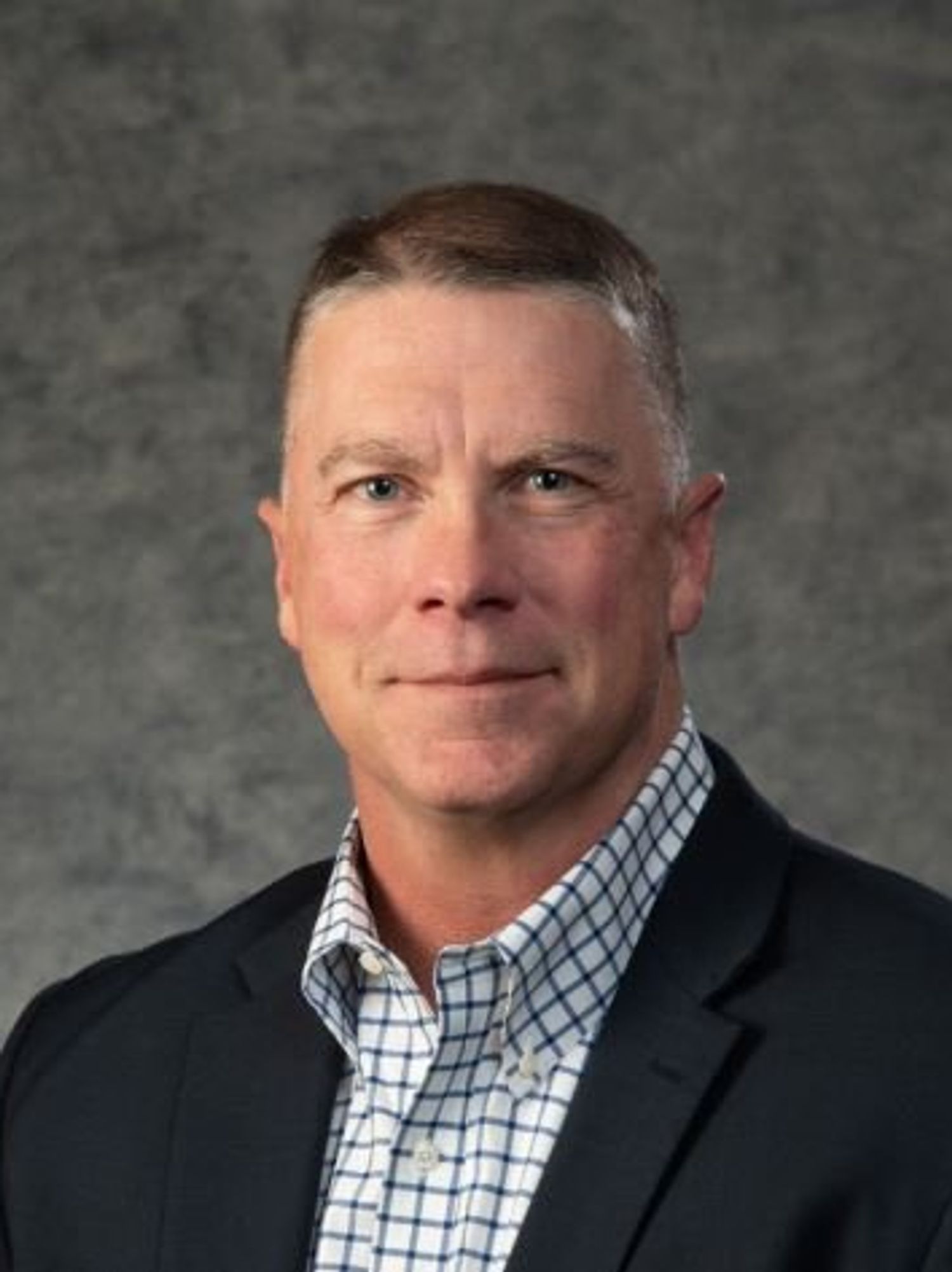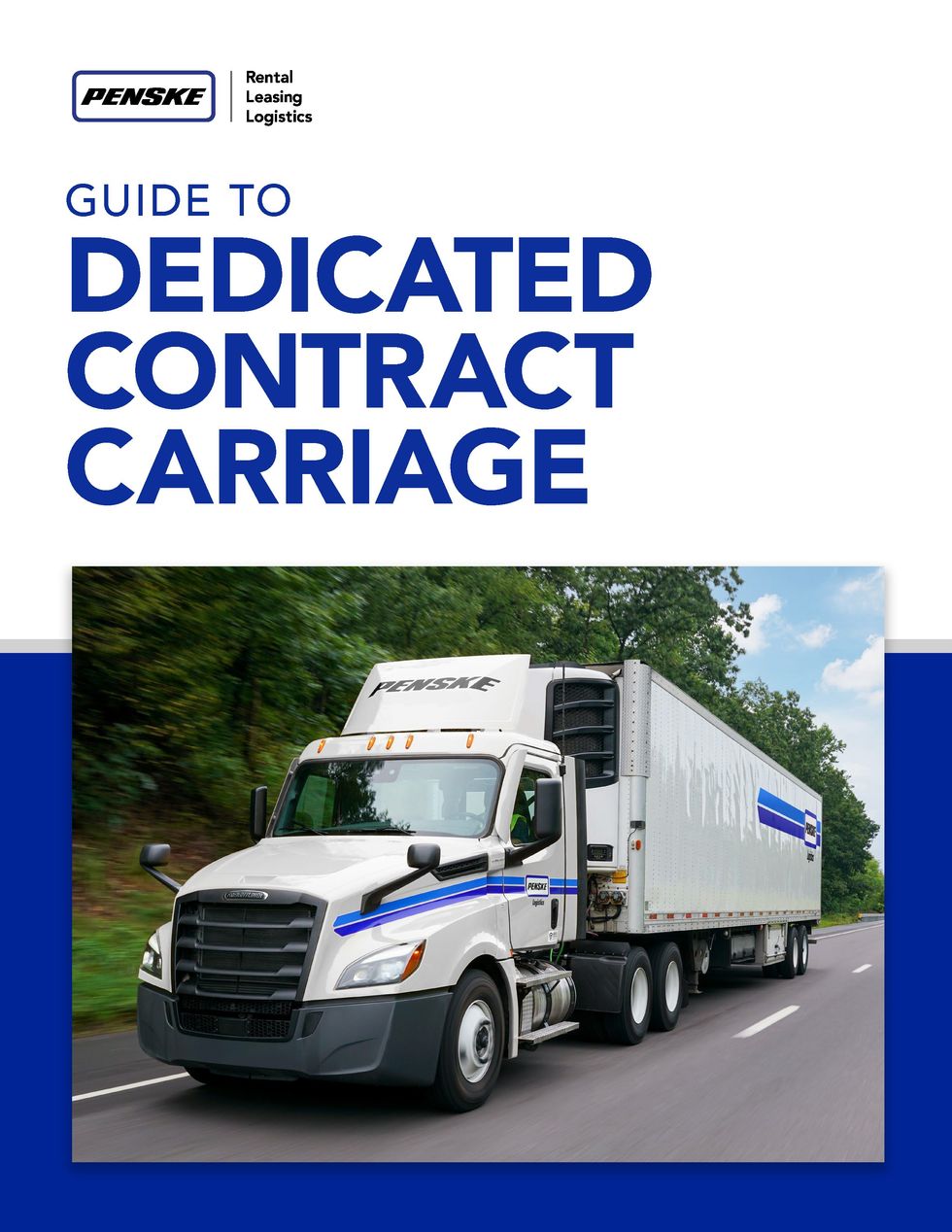Artificial intelligence and machine learning are deriving new insights from supply chain data that are increasing efficiency, improving decision-making and making operations more resilient. Penske is deploying AI to analyze and adjust operations throughout the supply chain.
“Each AI application is built for a specific use case, and we are just scratching the surface of what it can do,” said Rowland Myers, vice president of dedicated contract carriage strategy and support services at Penske Logistics.
Supplementing Existing Workflows
Agentic AI, which creates systems that operate as digital assistants, is increasing productivity for back-office functions. It can ensure data and inputs are correct and process tasks faster than a human alone, increasing productivity. “Instead of processing one thing, an employee can now process 10 in the same timeframe,” Myers said.
For example, agentic AI assists with capturing route structures for billing and computing payroll. Additionally, in Penske’s Transportation Support Services Center, AI sorts through and classifies roughly 10,000 emails a week. About 80% of those emails are irrelevant and made up of junk mail, carbon copies and FYIs, so coordinators can devote their focus to the actionable 20%. “It means they aren’t reading emails they’ll never take action on,” Myers said.
Having a digital assistant allows team members to elevate their strategic thinking, and Myers noted that while AI can automate and streamline tasks, it isn’t meant to replace associates. “It is here to augment our employees and allow them to do more value-added work rather than the tedious tasks,” he explained.
Tracking and Tracing Freight
Agentic AI is also helping staff validate key data from telematics devices and GPS inputs, speeding up communications and giving customers near-real-time increased visibility into freight.
“What used to take a day to get to a customer now gets to them in seconds,” Myers said, adding that it also enables proactive notifications. “We can send an alert when the product is 10 to 15 miles out, so they are prepared when we get there.”
Managing Inventory and Speeding Up Fulfillment
AI can optimize stock levels and SKUs across multiple locations inside the warehouse. Penske Logistics utilizes advanced AI-driven systems to analyze historical demand patterns, lead times and supplier reliability to determine ideal inventory thresholds.
Agentic AI is speeding up pick and load times and allowing for better quality control by analyzing data, pinpointing potential concerns and identifying opportunities to correct the situation.
“It identifies a risk in seconds and alerts someone who can take action,” Myers said, adding that it also follows through. “Whereas a human may say, ‘I fixed the problem,’ and move on, AI will ensure the process is completed all the way to the end. It gives you better quality.”
Utilize Technology
Technology is the backbone of a well-run supply chain. AI and ML are enhancing forecasting, planning and automation. According to McKinsey, AI-enabled automation has cut logistics costs by 15%, reduced inventory by 35% and boosted service levels by 65%.
Improving Trailer Utilization
The space inside a trailer is valuable, and maximizing cube utilization helps get the most out of each shipment. “We have just started using technology that can take a picture of the back of a trailer and determine how much space is available,” Myers said.
The technology gets specific and provides an accurate calculation that is more reliable than an associate’s estimate. “You might be able to send one less truck just by taking advantage of the space. It saves money and also reduces emissions,” Myers added.
Automating Yard Management
Yard operations at warehouses and distribution centers play a central role in the loading and unloading of goods and serve as a bridge between transportation and facilities, but historically, yards have lacked real-time visibility and control. Manual yard checks and paper-based tracking systems are time-consuming and only as current as the last update, which can create inefficiencies and make it difficult to find and allocate resources effectively, leading to congestion and long wait times for drivers.
Penske Logistics has implemented Blue Yonder’s AI-powered Yard Management solution that uses computer vision and machine learning to automate trailer check-ins and checkouts. It improves visibility into trailer locations and statuses, streamlines yard operations, makes it easy for drivers to find equipment and reduces manual errors.
Optimizing Networks
The overall architecture of a logistics network plays a crucial role in controlling costs and increasing agility. Combining AI-driven data analysis and advanced modeling can help engineers review sourcing locations, product demand, transportation modes, inventory levels and more to optimize the network.
Penske uses technology to run complex simulations to explore different configurations, including alternate suppliers, ports of entry, transportation routes, inventory strategies and distribution center locations, to find the ideal solution. “There are constraints you have to make sure you model, such as manufacturing limitations, delivery timeframes and costs,” said Andy Moses, senior vice president of solutions and sales strategy at Penske Logistics. “Many of these things compete against each other, but you can use models to find the right network design.”
AI can also optimize routing and scheduling, which minimizes transportation costs and delivery times.
Supply Chain Visibility and Decision-Making
Penske integrates AI into its supply chain management to enhance visibility and automate decision-making processes.
“Machine learning and artificial intelligence in the supply chain will help you process data faster and see your different options faster. Then you apply the human expertise and experience to take full advantage of the information and make it useful,” Moses said.
AI aids in demand forecasting, inventory management and transportation planning, allowing for more agile responses to market changes and disruptions. AI can also optimize routing and scheduling, which minimizes transportation costs and delivery times.
There are many uses for AI in supply chains today. Find out how Penske leverages it to monitor variables, identify potential risks and deploy contingency strategies before a disruption occurs.




 Cristy Sinclair, Penske Logistics director of food safety, has been recognized as a 2022 Rock Star of the Supply Chain by Food Logistics magazine.
Cristy Sinclair, Penske Logistics director of food safety, has been recognized as a 2022 Rock Star of the Supply Chain by Food Logistics magazine.